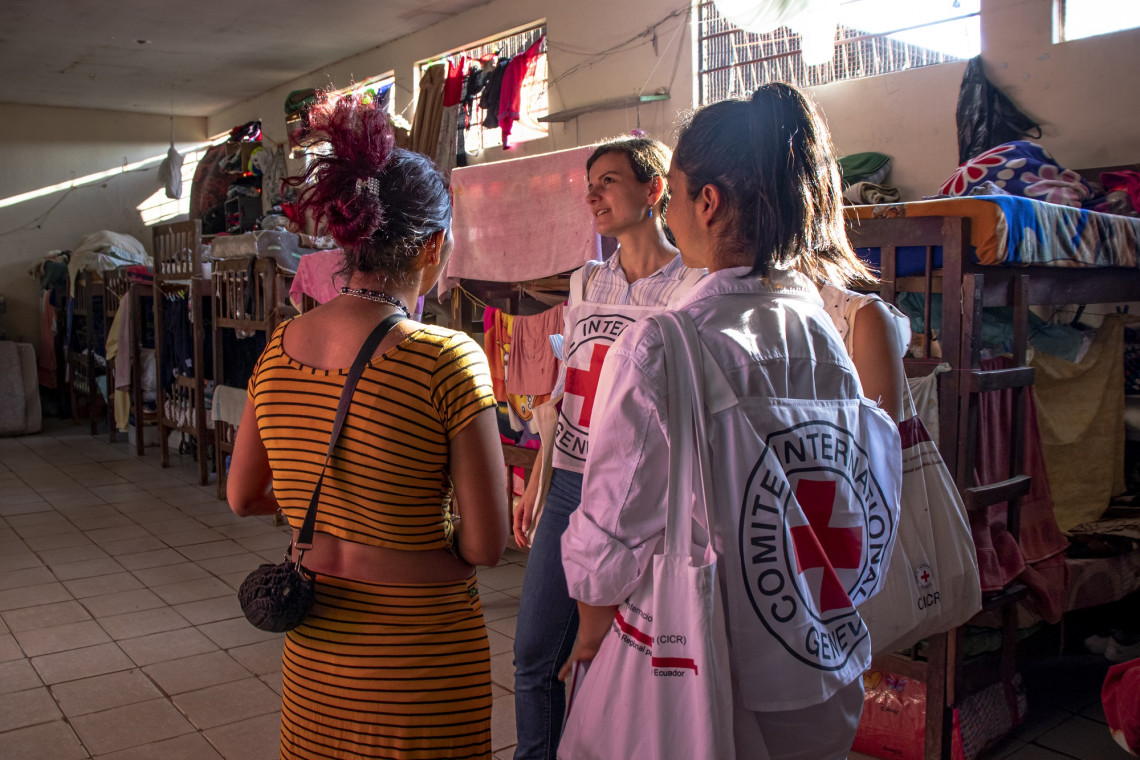
Bolivia: ICRC activities for persons deprived of their liberty

Since 2013, the International Committee of the Red Cross (ICRC) has been helping strengthen Bolivia's prison system in order to help improve prison conditions and the treatment of persons deprived of their liberty.
Currently, as part of the Interinstitutional Agreement (2022–2027) with the Ministry of Government, and working closely with Bolivia's General Directorate of Prisons, the ICRC promotes the adoption of good prison practices and helps improve detention conditions for persons deprived of their liberty.
Bolivia's prison system in figures:
One of the main ICRC activities is carrying out visits to detention centres and having confidential chats with persons deprived of their liberty; these guide our ongoing dialogue with the General Directorate of Prisons on prison-related matters.
Strengthening the prison system
In recent years, the ICRC has helped build the capacity of the General Directorate of Prisons in terms of detention centre management and treatment of prisoners, through meetings, national workshops and support for participation in regional or global forums.
The ICRC also provides support and advice regarding the formulation and dissemination of prison management documents, such as protocols for psychology, legal and social work (classification of persons deprived of their liberty) for General Directorate of Prisons personnel working with prisoners. In other instances, support has focused on fire risk management at a specific detention centre.
A major focus is on improving detention conditions through water, sanitation and liveability infrastructure works, or other ad hoc support. Over the years, several detention facilities have received this support for specific work. This has always been focused on supporting the most vulnerable people within the prison population of the prison in question, such as people with mental health problems and new admissions, among others. In recent years, several prisons have received this support, including the Chonchocoro, San Pedro and Miraflores prisons in La Paz, the El Abra and San Sebastián Mujeres prisons in Cochabamba, and Palmasola prison in Santa Cruz.
The ICRC also supports the strengthening of health services in prisons through technical dialogue with health-care staff and ad hoc donations. These donations have included specialized furniture for storing the medical records of persons deprived of their liberty, thus improving the application of the principles of medical ethics. They have also included providing a number of detention facilities nationwide with cleaning, disinfection and protection materials, and oxygen tanks during the COVID-19 pandemic.
The infrastructure improvement works are achieved through very close coordination between the ICRC, the General Directorate of Prisons and persons deprived of their liberty, who, in addition to contributing their labour, play a central role in developing and implementing these initiatives.
The ICRC seeks to ensure that persons deprived of their liberty and in vulnerable situations live in dignified conditions, are not mistreated and have access to various activities that allow for their rehabilitation and reintegration into society, regardless of the reasons for their detention.
